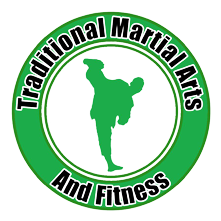7 Tips For Training During Ramadan
The Month Of Ramadan
Ramadan is the ninth month of the Islamic calendar, and it’s famous as the month of fasting. During this month, Muslims tend to avoid having food and water from sunrise to sunset (if they are in good health).
With over 1.5 billion Muslims in the world, there are many athletes and sports-enthusiasts who struggle during the month of Ramadan. Should they train when fasting? And how can they make it a better experience?
Benefits Of Training While Fasting
For many people out there, it’s a good idea to train when fasting. The two main benefits are:
Fat Loss: The human body gets most of its energy from glucose, a molecule derived from carbohydrates found in sugars and grains. Most glucose is used up instantly, with the excess being turned into fat. When you fast, your body loses access to glucose and is more likely to break down other macronutrients like fat (and occasionally protein). This is why studies link fasting to fat oxidation, which is excellent if you want to lose weight and body fat. Just be mindful not to overeat after breaking your fast.
Improved Endurance: Studies also show that training while fasting improves your endurance, meaning you will be able to do aerobic exercises for longer. The underlying cause is that your body becomes reliant on stored fat, so it gets better at breaking down the fat into usable energy. This improvement helps your endurance, as endurance exercises last longer than your glucose supply.
Downsides Of Training While Fasting
Training while fasting isn’t without its downsides. The two biggest are:
Muscle Loss: The reason for muscle loss is that your body will also break down the protein in your muscles for energy. That said, the rate of muscle loss is much slower than fat loss because fat has more energy than protein. Yet it’s still a good idea to exercise while fasting, as the exercise will help you maintain your muscles if paired with a proper diet.
Worse Performance: If you’ve ever practiced martial arts while fasting, you’ll already be aware of the worsened performance. The cause is a lack of energy, which makes it harder to concentrate on what you’re doing and tires your body more quickly.
Nutritional Tips
One way to improve your training is by managing what you eat after iftar.
Eat High Protein Foods
To combat muscle loss, you should try to eat foods that are high in protein. This includes meat, eggs, nuts, and legumes. You should also consult with a nutritionist to see if you need protein powders if your diet is lacking in this department. These will help you maintain your strength when training.
Eat Nutritious Foods
You have a limited eating window during Ramadan, so you should try to get as many nutrients as possible. The best way of doing this is to include plenty of fruits and vegetables in your diet. A good piece of advice is to make your plate as colourful as possible to ensure you’re getting all your vitamins and minerals.
Drink Plenty Of Water
Dehydration is a big problem when fasting. It can have serious health consequences, so you should try to drink plenty of water while you have the chance. Make sure to always keep a bottle of water with you, and drink from it consistently. Doing so reduces the effects of dehydration when training, so your performance won’t be as impaired.
Avoid Foods That Make You Thirsty
In a similar vein, you should avoid foods that make you dehydrated. This includes salty snacks and diuretics like coffee (especially if it’s the only thing you drink). This helps keep you hydrated and healthy.
Training Tips
You can change some aspects of your martial arts training and be more mindful when exercising to have a better fasted training experience.
Train At A Lower Intensity
You’re fasting and have less energy, so it’s going to be difficult to go all out without crashing. That’s why you should pace yourself and focus on doing lower intensity training. A good way of doing so is by reducing both the training duration and how much energy you put into it.
When practicing martial arts, this means focusing on your technique instead of your speed and strength. Use this as an opportunity to master a kata and develop a good stance, as this knowledge will do you more good in the long-term.
Know Your Limits
Training while fasted can be problematic if you aren’t self-aware. Track your energy levels and be aware of your limits. Don’t try to push beyond what you can do, as this is dangerous.
If you’re beginning to feel light-headed or dizzy, tell the instructor you need to rest. There’s nothing wrong with knowing your limits, and it’s better to take a rest than risking your health (which can have long-term consequences). Your instructor will understand what you’re going through, and they’ll try to help you as much as possible, so don’t be afraid to ask if you need a breather.
Train At A Convenient Time
When you exercise is much more important during Ramadan. Studies show evening training is better for your health when fasting. Anecdotally, many Muslim athletes will also train right before iftar, as it allows them to refill their energy levels as soon as they finish training.
That said, each person is different. Some people prefer to practice after they’ve had something to eat. Or they might prefer waking up early, and training before sunrise. See what works for you and your system.
Here at Traditional Martial Arts And Fitness, we offer plenty of classes that will help you train while fasted. Our special Ramadan classes offer a shorter and lighter experience for anyone who wants to train fasted, and it takes place right before iftar. If you’re interested in this, be sure to call us at +971 4 430 1011 or send an email to INFO@MARTIALARTDXB.COM.
